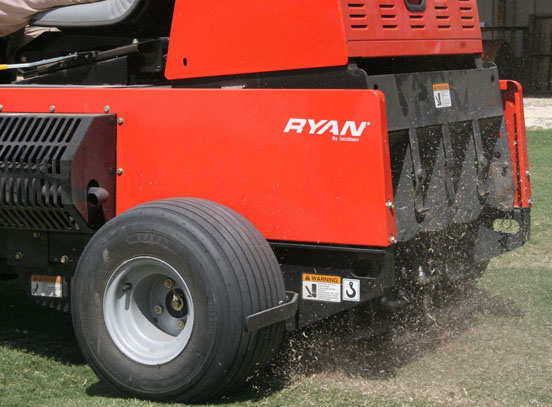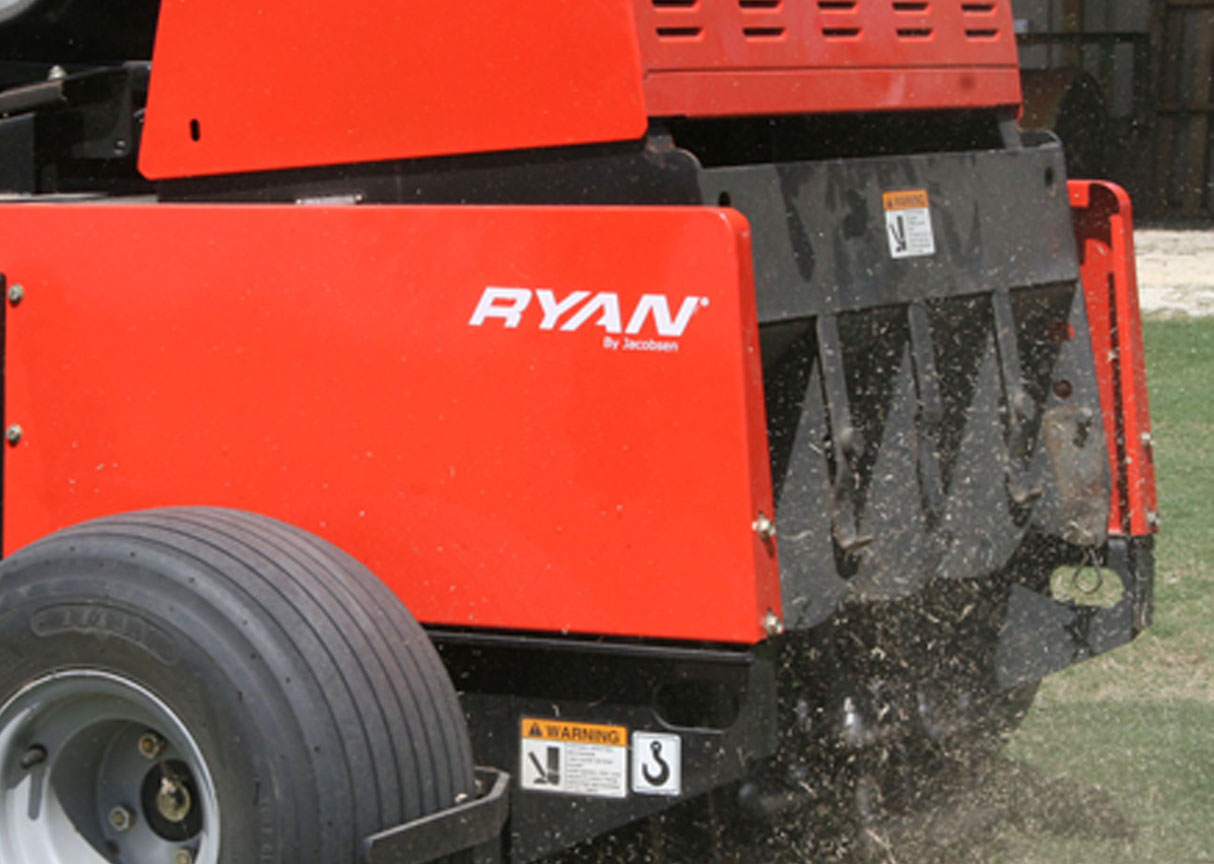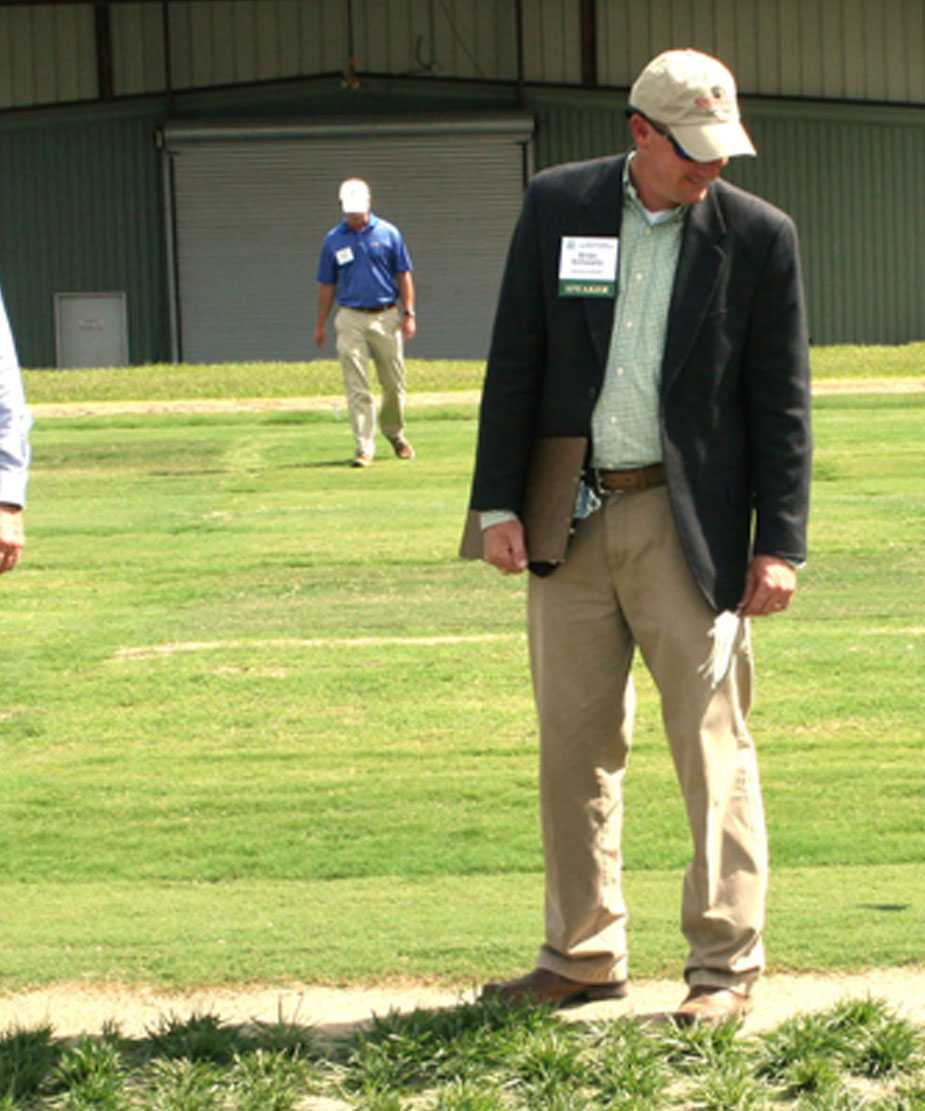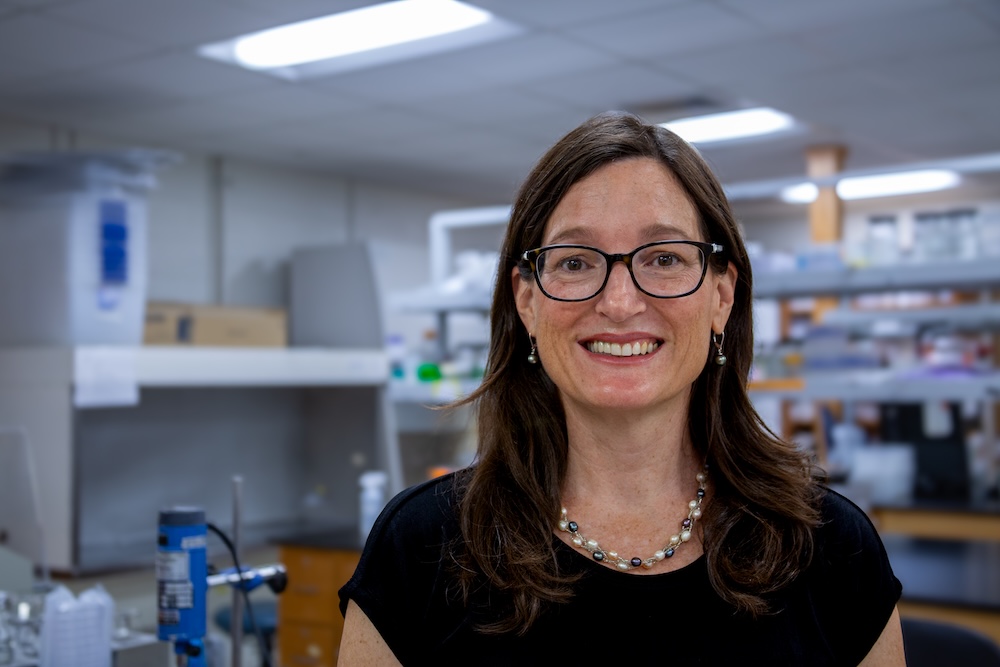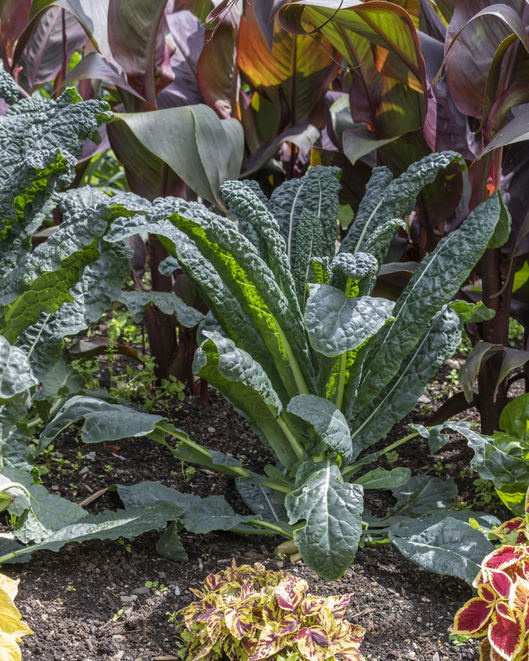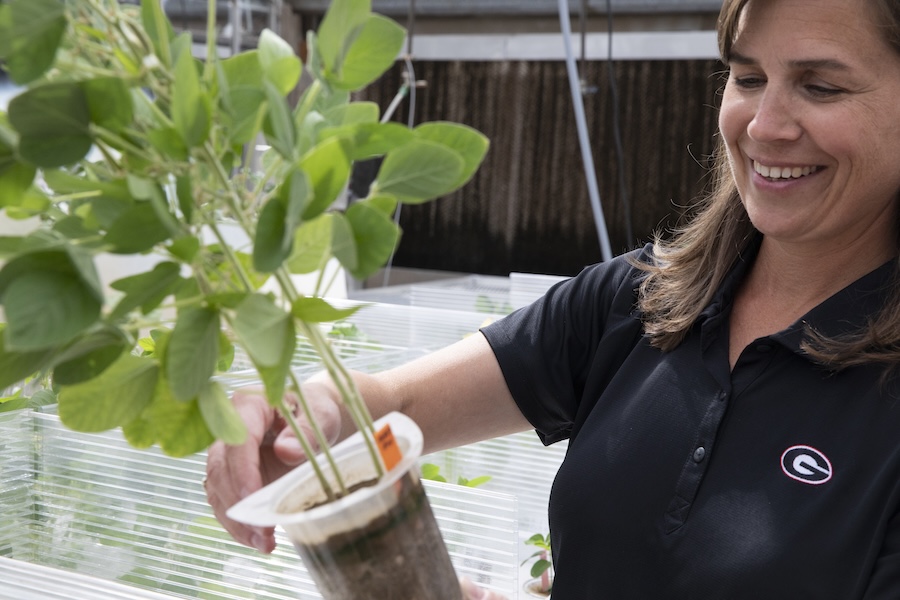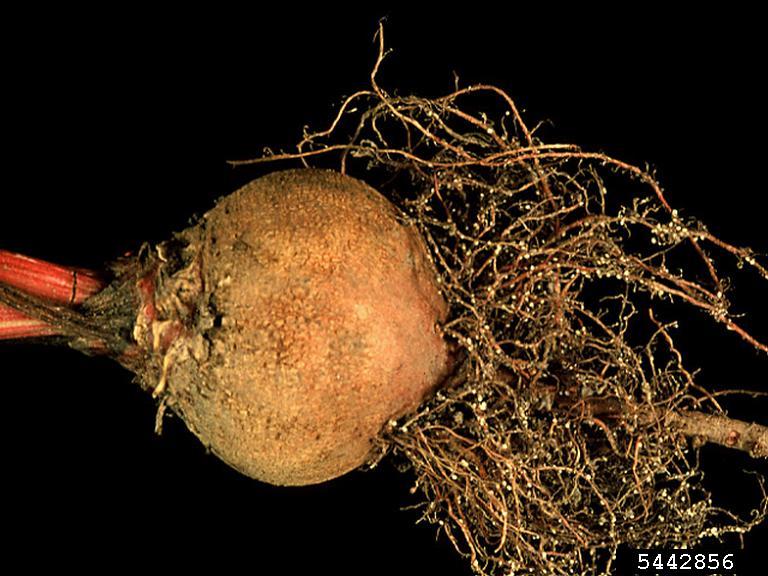Turfgrass experts from across the Southeast were in Tifton on Tuesday for the 67th annual Southeastern Turfgrass Conference.
Turf scientists and breeders from the University of Georgia, ABAC, Clemson and the University of Florida all brought the latest in turf and grass science to south Georgia for the event. The annual conference highlights UGA turfgrass research and provides professionals with the knowledge they need to manage grasses in “the real world,” said UGA College of Agricultural and Environmental Sciences turfgrass breeder Brian Schwartz.
Hot topics addressed at this year’s conference included dealing with nematodes in southeastern turf, herbicide resistance in bermudagrass and maximizing the gain from your fertility program.
Schwartz and fellow UGA CAES turf breeder Paul Raymer gave an update on the latest bermudagrass hybrids. Schwartz discussed UGA’s Turfgrass breeding program, golf course greens, new grasses for sod farms and home owners and a new turfgrass drought-tolerant grass variety, DT1, bred by retired UGA turfgrass breeder Wayne Hanna.
“We’re not in a drought this week, but the drought will come back. People will have water(ing) restrictions. Hopefully, this grass will serve them well,” Schwartz said.
Turfgrass is a valuable commodity across Georgia. According to the 2011 Georgia Farm Gate Value Report, turfgrass generated $74 million. It is a commodity that affects sports venues, golf courses and lawns around the country.
“It’s one of those universal things,” Schwartz said. “From the golf course to the commercial area to your lawn, people care and we want to make it better for them.”
Schwartz added that turf management is also important for consumers. Knowing the proper way to take care of your lawn or your putting green is essential for turf users.
“Genetics is only a part of the equation. You have to have great management. Between the management, the water, the fertility, you can have a great grass that’s ruined by bad management. You can (also) have a pretty bad grass that’s brought up by good management,” Schwartz said.
Other discussions included a brief synopsis from UGA CAES entomologist Will Hudson on turfgrass insect pests, a short talk on issues in urban agriculture by UGA CAES entomologist Kris Braman and a look at advancing the frontiers of new trees and shrubs by UGA Professor Emeritus Michael Dirr.
The event concluded at the campus’ turfgrass plots where Schwartz talked about current research on the Tifton campus.

